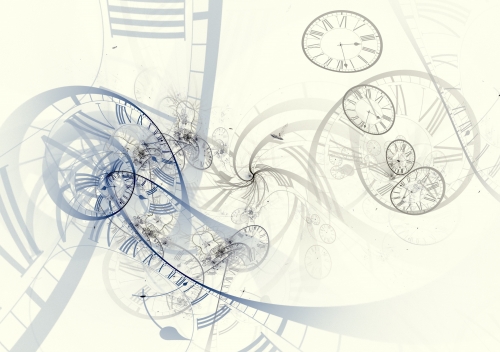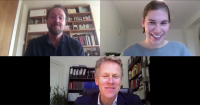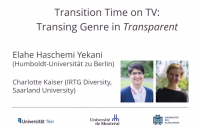The following three podcasts
*Historische Ereignisse, Zeitenwenden und Vielfalt der Temporalitäten
(Frank Bösch, Leibniz-Zentrum für Zeithistorische Forschung, Potsdam)
*Transition Time on TV: Transing Genre in "Transparent"
(Elahe Haschemi Yekani, Humboldt-Universität zu Berlin)
*Crip Times: Disability, Globalization, and Resistance
(Robert McRuer, George Washington University)
anticipate the sixth collective volume "Temporalities of Diversity / Temporalités de la diversité / Zeitlichkeiten der Vielfalt," of the “Diversity / Diversité / Diversität” publication series at Waxmann: https://www.waxmann.com/en/waxmann-reihen/?no_cache=1&tx_p2waxmann_pi2%5Bissn%5D=2365-9157&tx_p2waxmann_pi2%5Baction%5D=show
This multi-media publication project fills in for the IRTG Diversity Mid-term International Conference scheduled for September 2020, which needed to be cancelled due to the Covid-19 pandemic and sanitary crisis.
Listen to the podcasts on the IRTG Diversity Youtube channel:
https://www.youtube.com/playlist?list=PLUPjpmnoD29pln9HYWxHTeq4Tydv0XPRg
Or download them via our Seafile-Cloud:
Podcast with Frank Bösch https://seafile-irtg1864.uni-trier.de/f/04496b8c90404b9dbe92/?dl=1
Podcast with Elahe Haschemi Yekani https://seafile-irtg1864.uni-trier.de/f/db075c7240ed4f62992f/?dl=1
Podcast with Robert McRuer https://seafile-irtg1864.uni-trier.de/f/a23f4b0b17b749d6838e/?dl=1
The upcoming essay and podcast collection (Fall 2021) edited by Charlotte Kaiser, Ouennassa Khiari, and Viktoria Lühr explores the connections between time and difference in a transcultural perspective.
The dehistoricization and naturalization of diversity in contemporary discourse conceal the roles of subjectivity, memory, and time in the social construction of difference. The experience and perception of time is at once psychological, linguistic, political, philosophical, and cultural. It is also technologically mediated. Whether linear, circular, interrupted, cyclical, synchronic, diachronic, or (non-)simultaneous, time stands in problematic relation to space, and not just metaphorically. Overlapping memories, hidden histories, processes of in- and exclusion, future aspirations and projections, arise from and give rise to diversity.
Both memories and metanarratives are cultural practices that organize experience and transform it into general knowledge. Following Lyotard and poststructuralist theorists we can question these hegemonies to unveil “petits récits” (1979) and to reflect on the diversity of human experience, such as for example indigenous, immigrant and other marginalized perspectives in Canada and Québec as well as in Europe.
On the one hand, time is a collectively shared principle enabling social organization. Therefore, a considerable number of disciplines such as phenomenology, sociology, and history use time as a core analytic concept.
On the other hand, poststructuralist scholars, for example in queer theory or postcolonial studies, criticize the notion of linear temporal development as well as future progress.How can we deconstruct the notion of ‘temporality’ in order to broaden our perception of diverse memories, (non-)linear developments, narrative utopias, overlapping social realities and medial intertemporalities?
Whereas digital media technology appears to collapse time and space into universal present such appearances conceal a vast array of potential meanings as users reinsert them into different cultural and historical contexts. Disentangling the temporal threads that constitute the media(ted) present of diversity thus becomes imperative.













